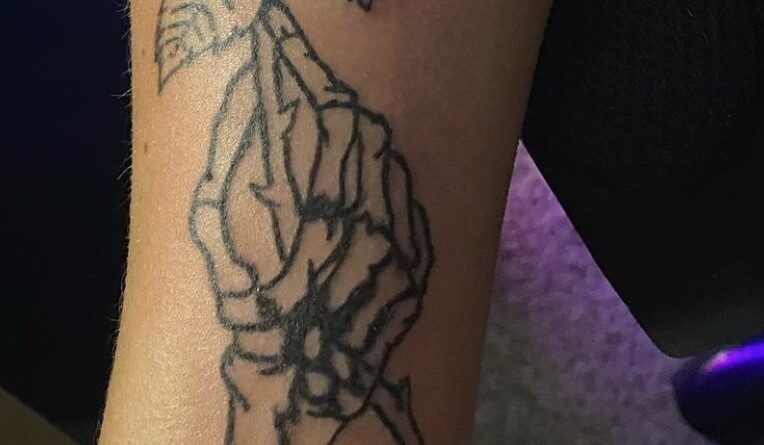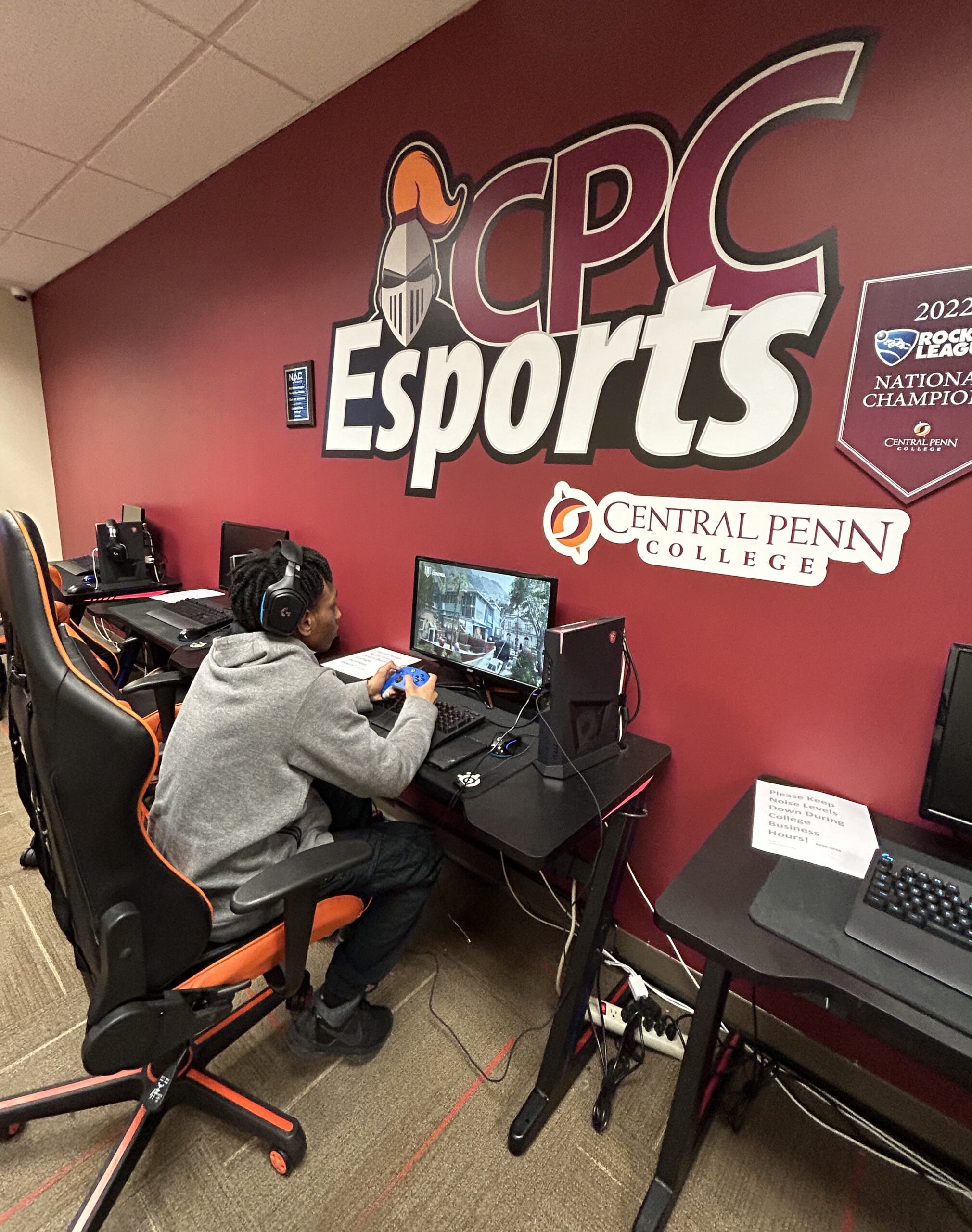Central Penn student sketches out avocation
She’s making impressions pursuing a dream
Editor’s note: This story was a collaboration by two Knightly News reporters. Shughart and Gregory wrote the story, with Gregory also serving as an expert source.

By Alexa Shughart
alexa.shughart@mymail.centralpenn.edu
and

Olivia Gregory
olivia.gregory@mymail.centralpenn.edu
Knightly News Reporters
When people think of college-student side hustles, working as a tattoo artist probably doesn’t come to mind.
Well, Olivia Gregory, 21, a Central Penn corporate communications student who lives in Camp Hill, will make people think differently about those college jobs.
Gregory, who is close to earning her degree, has many interests. Tattooing is one of them, and she shares information with anyone interested in the challenges and advantages of becoming a tattoo artist.
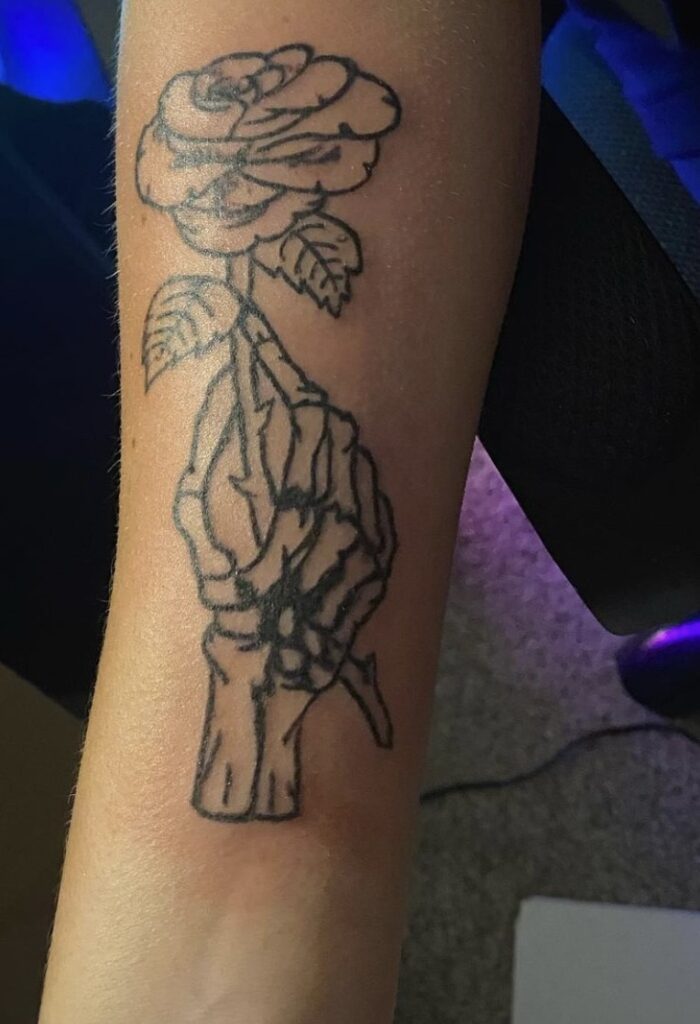
Photo by Olivia Gregory
Gregory took an interest in tattooing a little under two years ago. She picked up curiosity for the well-known body modification because of her fascination with art.
“Art has always been my passion,” she said. “Becoming interested in tattooing, and getting several tattoos of my own, I thought why stop with a paintbrush and canvas? Why not learn how to use my body as a canvas? And that’s when I decided to learn how to tattoo.”
However, the process of starting this secondary occupation wasn’t simple.
“Before tattooing on people other than myself, there was a large amount of research I knew I needed,” Gregory said. “From tattoo laws in Pennsylvania to how to create the smoothest and clean-cut lines. After gaining all the knowledge and research I needed, it was time to gather all the necessary supplies to create the perfect tattooing environment.”
Building a business
Gregory shared a list of supplies needed, and the average cost for procuring what she needs for her tattooing business.
• Dragon Hawk rotary machine: $99.99
• Multiple sizes of needles (100 needles per pack): $59.99
• Hustle Butter before, during and after tattoo cream: $21.99
• 8-ounce bottle of Tincture of Green Soap USP: $12.99
• Gozahead Tattoo Aftercare Bandage, 1-yard roll: $13.99
• Restaurantware plastic wrap, 18 inches by 2,000 feet: $34.06
• Viking Tattoo Ink, 7 pack: $30; Intenze Tattoo Ink, 19 pack: $179.99; Bloodline Tattoo Ink, 12 pack: $57.89
• Ink cups, 300 pieces: $7.99
• Advance nitrile gloves, 100 pack: $25.99
• Foldable table: $62.48
• Artist Hand tattoo chair: $219.99
• Tattoo printer: $199.99
• Computer printer: $179.99
• Tattoo printer paper, 100 sheets: $21.99
• Practice skin: $24.99
These supplies, which Gregory considers the minimum, racks up to $1,254.30.
Not only was the process to begin tattooing complex, but Gregory found herself searching for clientele.
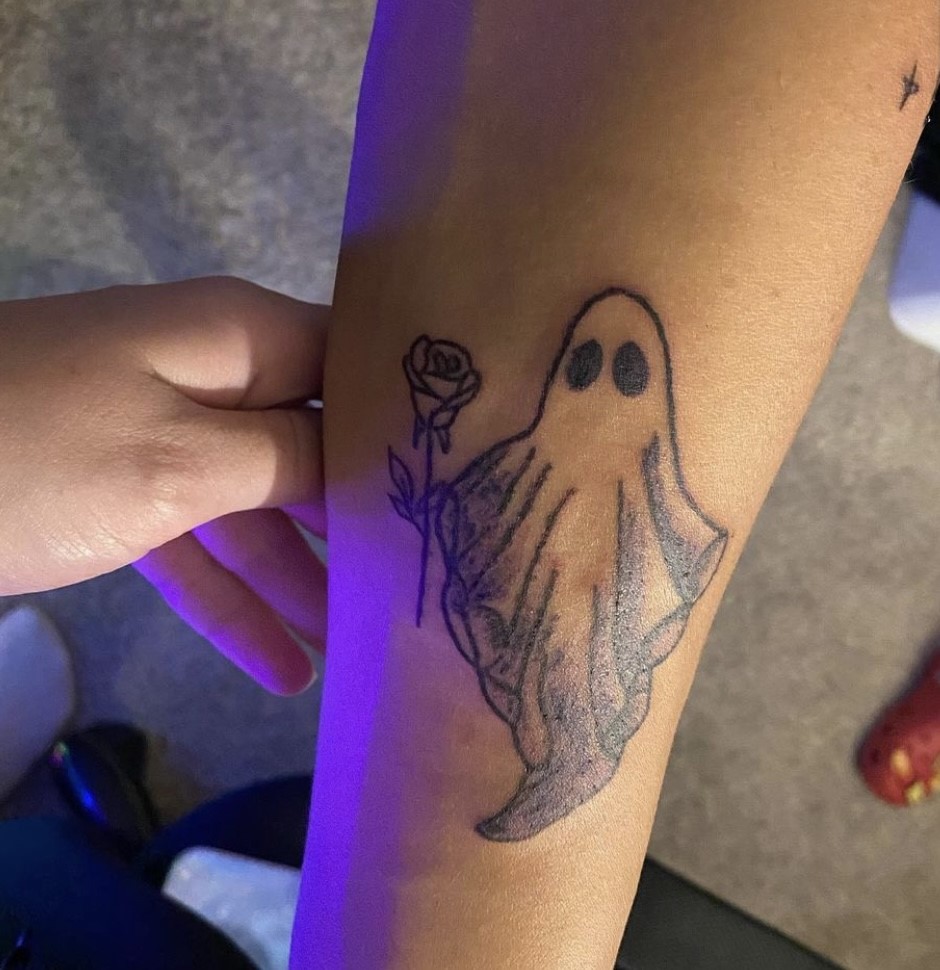
“It can be hard building up a clientele that trusts you in tattooing them,” Gregory said. “After tattooing my first few clients, they shared their experiences getting tattooed by me, which helped build my clientele.”
Not much red tape
The rules and regulations regarding tattooing in Pennsylvania may come as a surprise to people: There are none at the state level – no Pennsylvania department or agency licenses tattoo artists, according to longtime and well-known tattoo parlor owners who are tattoo artists. People are free to tattoo inside of their homes or in a shop.
Operators of tattoo parlors or tattoo artists who work at home may have to get a business license, depending on where they operate. In Pennsylvania, tattoo businesses outside the home may be inspected by local or county health or other agencies. People who do or wish to tattoo at home should contact their municipal government and inquire about requirements.
It’s illegal to tattoo anyone under the age of 18, according to tattoolawsbystate.com. Anyone found tattooing a minor without parental consent is guilty of a misdemeanor and may either have to pay fines or serve jail time.
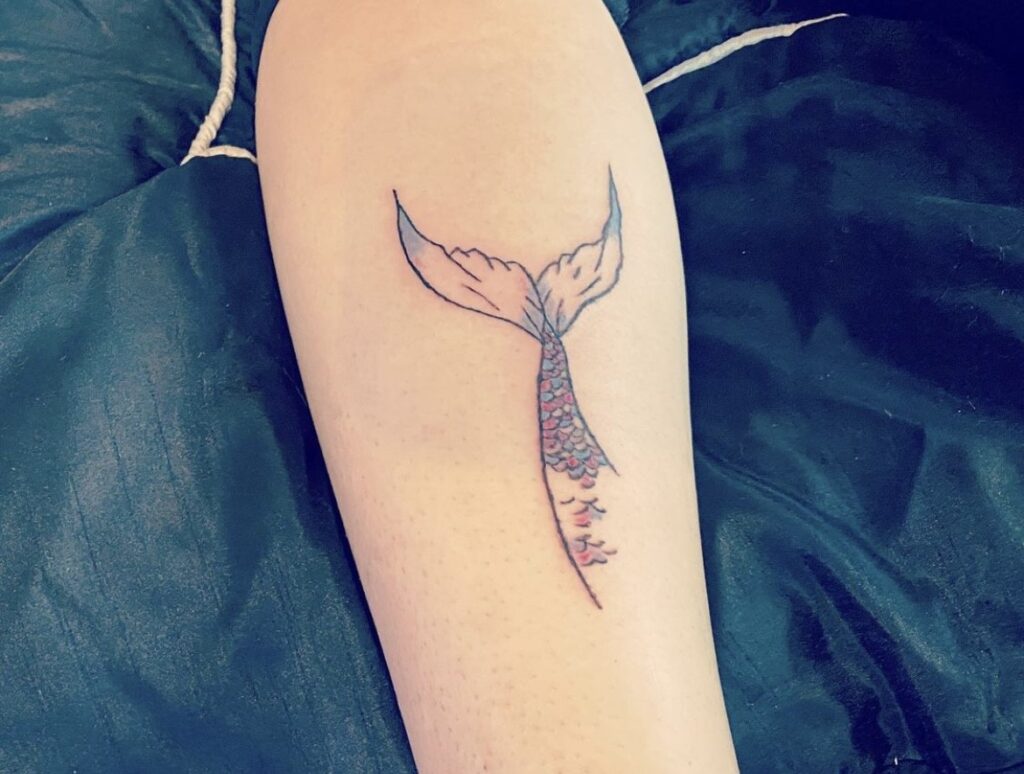
To ensure that Gregory is following state law concerning age of consent, she tattoos only people she knows well and can confirm they’re adults.
In her free time, Gregory likes to practice tattooing on her practice skin sheets. They allow her to try new techniques and practice freehand tattooing.
After taking a year off from tattooing due to pregnancy, Gregory is glad to be back doing something she loves. However, finding the time to tattoo has certainly been challenging.
“With working 40 hours a week, taking care of a baby, and having school, it can be difficult to fit in tattooing,” she said. “So, I cherish any opportunity that I have to fit in a tattoo, or practice on my practice skins.”
A college student turned tattoo artist, Gregory has nothing stopping her from doing what she loves.
To learn more about the history of tattoos, see this article in Smithsonian Magazine.
Have a comment or story idea? Contact KnightlyEditors@CentralPenn.Edu.
Edited by media-club co-adviser and blog editor Professor Michael Lear-Olimpi.

